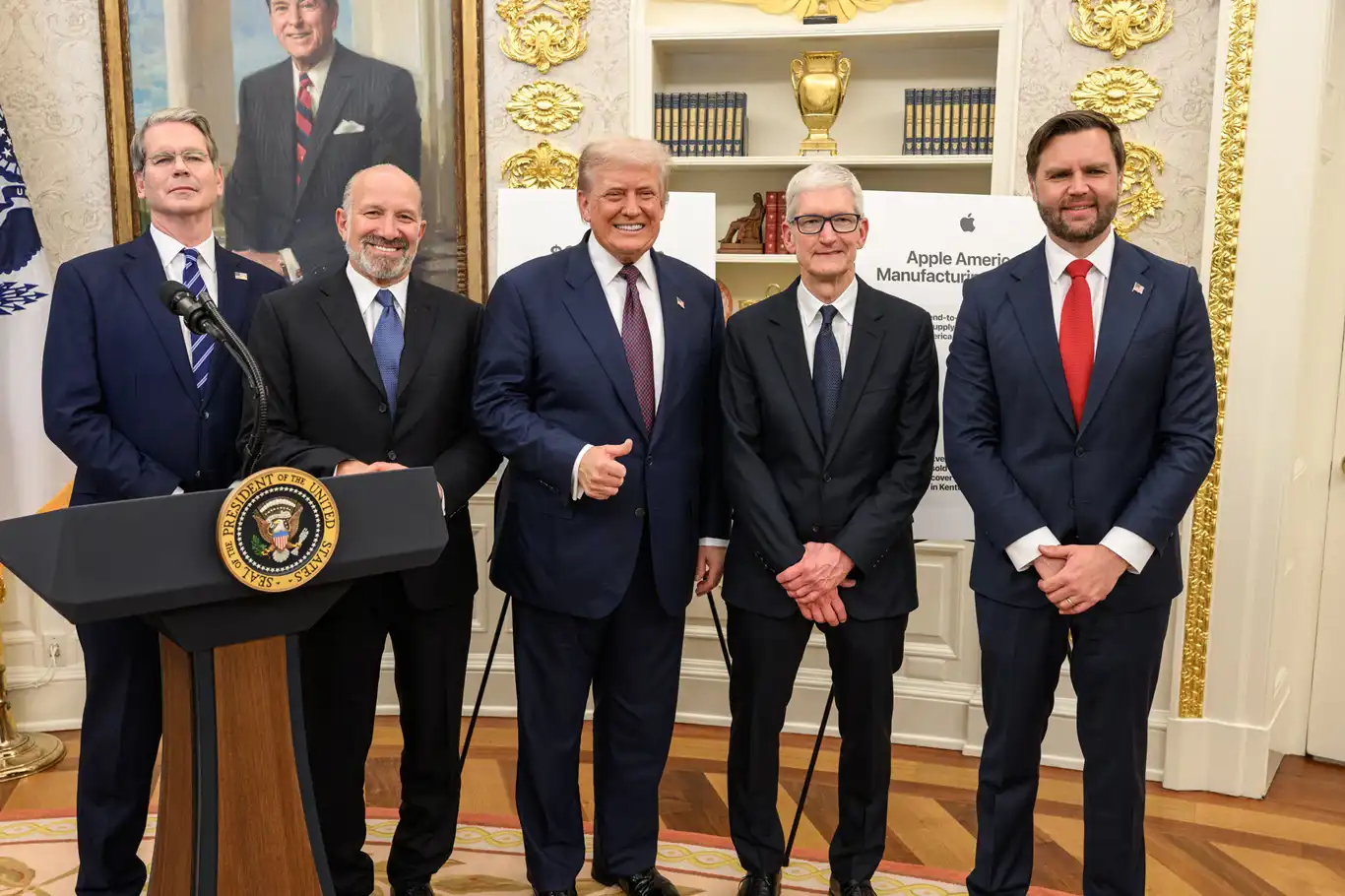Trump announces 100% tariff plan on imported semiconductors, with exemptions for U.S. investors


U.S. President Donald Trump announced Wednesday a draconian 100 percent tariff on all imported semiconductors and chips.
The proposal, aimed at forcing high-tech manufacturing back to U.S. soil, is a dangerous overreach that risks skyrocketing costs for American companies, disrupting supply chains, and alienating key trading partners—all while offering vague promises and murky details.
Speaking at a press event, Trump boasted that the tariffs would exempt companies building or planning manufacturing facilities in the U.S., claiming, “If you’re building, there will be no charge.” Yet the administration has provided no clarity on what qualifies as sufficient investment, leaving companies like Apple, reliant on partnerships with firms like Applied Materials and Texas Instruments, guessing whether their efforts will pass muster. This ambiguity is a recipe for uncertainty, discouraging investment rather than encouraging it.
The announcement has already sent shockwaves through the global tech sector, with Asian chipmakers like Taiwan Semiconductor Manufacturing Company (TSMC) caught in the crosshairs. Trump wildly exaggerated TSMC’s U.S. investment plans, claiming a $300 billion commitment when the company’s own filings peg the figure at $165 billion. This discrepancy raises serious questions about the administration’s grasp of the industry it seeks to overhaul. TSMC, a cornerstone of the global chip supply, declined to comment, leaving its customers—server manufacturers and hyperscale data centers—bracing for potential cost hikes.
Worse still, Trump’s threat of retroactive tariffs on companies that “promise and don’t build” smacks of punitive overreach. This vague, heavy-handed policy could penalize firms acting in good faith, further chilling investment and innovation. And who will bear the brunt of these tariffs? Not foreign exporters, but American importers—U.S. tech giants, chip designers, and industries dependent on high-performance computing. These companies, already navigating chip shortages and geopolitical tensions, now face crippling cost increases that could stifle growth and pass steep price hikes to consumers.
The global fallout is inevitable. Trading partners, particularly in Asia, are likely to retaliate, escalating trade tensions at a time when cooperation is critical to stabilizing supply chains. Domestic critics, from tech industry leaders to lawmakers, are poised to push back against a policy that seems more theatrical than strategic. By ignoring the cost efficiencies of overseas fabrication, Trump’s plan threatens to unravel decades of global collaboration that has driven technological progress.
As the White House scrambles to provide formal guidance on this half-baked tariff structure, one thing is clear: Trump’s aggressive trade gambit risks plunging the U.S. tech sector into chaos, all while offering little more than bluster and bravado. (ILKHA)
LEGAL WARNING: All rights of the published news, photos and videos are reserved by İlke Haber Ajansı Basın Yayın San. Trade A.Ş. Under no circumstances can all or part of the news, photos and videos be used without a written contract or subscription.
Iran marked a major milestone in its space program on Friday with the successful launch of its domestically-built research and telecommunications satellite, Nahid-2, into orbit aboard a Russian Soyuz rocket from the Vostochny Cosmodrome.
Microsoft has sounded the alarm on a series of active cyberattacks exploiting critical vulnerabilities in its SharePoint Server software, widely used by businesses, government agencies, and organizations worldwide.
Türkiye’s biggest technology event, the SDN Tech Expo, officially opened its doors at the Yenikapı Eurasia Show and Art Centre in Istanbul, drawing thousands of visitors, tech enthusiasts, and industry professionals.
The U.S. House of Representatives has officially banned Meta’s WhatsApp messaging platform from all government-issued devices, citing significant cybersecurity risks.